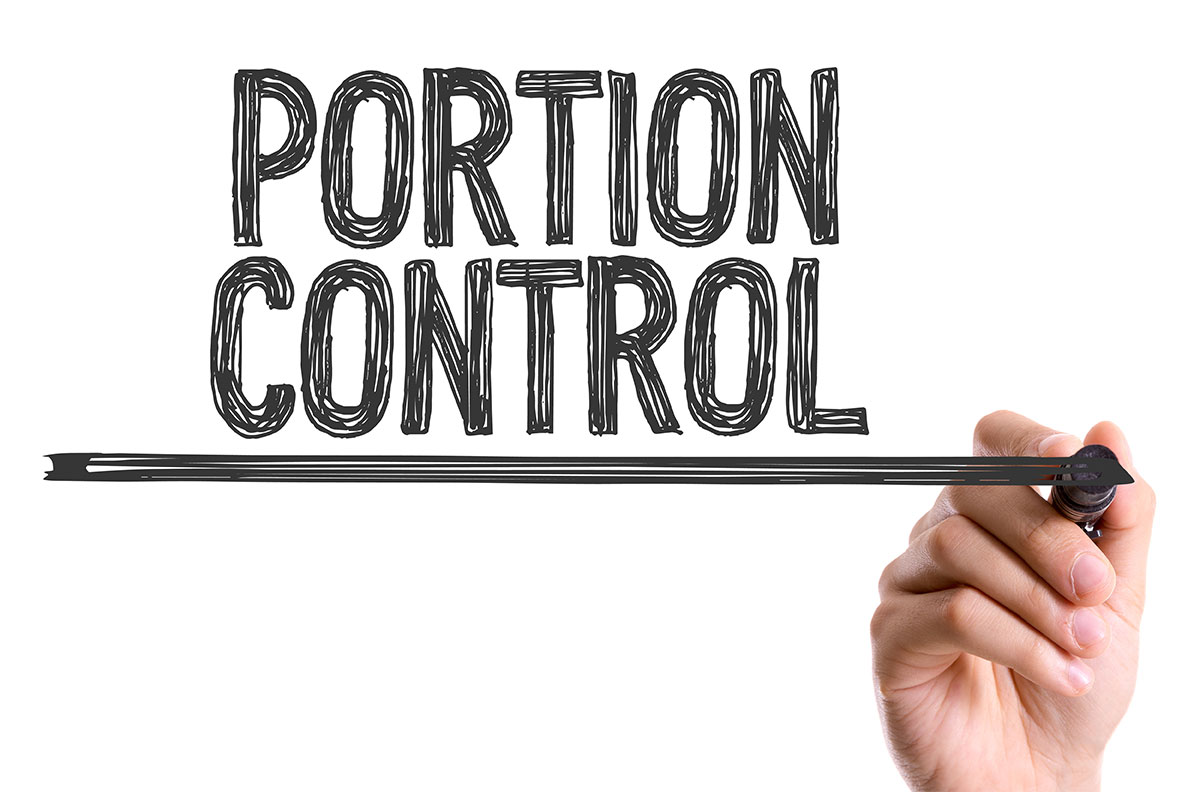Why am I Gaining Weight Despite Diet and Exercise? │ QA
If you’re careful with your nutrition, working out weekly, and still experiencing problems with your weight, take a moment to read this QA.


I just started participating in no-meat-Mondays. What are some well-balanced vegetarian based meals I can eat (breakfast, lunch, dinner)?

What a fun step toward a healthy-for-you and better-for-the-planet diet!
Here is a month’s worth of options for your Meatless Mondays:
Breakfast
Lunch
Dinner
Choices inspired by PETA vegan recipes.
– Debbie J., MS, RD
This article should not replace any exercise program or restrictions, any dietary supplements or restrictions, or any other medical recommendations from your primary care physician. Before starting any exercise program or diet, make sure it is approved by your doctor.
Some questions have been edited for length and/or clarity.
 Have a nutrition question? Our registered dietitian is ready to help!
Have a nutrition question? Our registered dietitian is ready to help!
Email nutrition@lafitness.com or submit your question below and it may be featured in an upcoming article!
If you’re careful with your nutrition, working out weekly, and still experiencing problems with your weight, take a moment to read this QA.
Blood sugar control isn’t easy. These are Debbie’s top recommendations for how to address weight control with Type II Diabetes.
Does Intermittent Fasting give you enough time to pack the day's protein? Our registered dietitian helps clear up the confusion!


Are protein supplements necessary if you already consume a lot of protein naturally?

Supplements are intended to fill the gaps missing from dietary intake, whether from food choices or impaired digestion/absorption. If your protein consumption is already high (> 1 gm/kg per body weight) then protein supplements are generally unnecessary. Many people still choose to include supplements instead of real food due to time, cooking or refrigeration restraints. The protein in certain supplements may be concentrated or isolated, but most supplemental protein is part of a bar or meal replacement shake with significant carbohydrates, fat or other nutrients. Consider the whole product when choosing a protein supplement.
– Debbie J., MS, RD
This article should not replace any exercise program or restrictions, any dietary supplements or restrictions, or any other medical recommendations from your primary care physician. Before starting any exercise program or diet, make sure it is approved by your doctor.
Some questions have been edited for length and/or clarity.
 Have a nutrition question? Our registered dietitian is ready to help!
Have a nutrition question? Our registered dietitian is ready to help!
Email nutrition@lafitness.com or submit your question below and it may be featured in an upcoming article!
If you’re careful with your nutrition, working out weekly, and still experiencing problems with your weight, take a moment to read this QA.
Blood sugar control isn’t easy. These are Debbie’s top recommendations for how to address weight control with Type II Diabetes.
Does Intermittent Fasting give you enough time to pack the day's protein? Our registered dietitian helps clear up the confusion!


What should start with if I want to learn with nutrition? My focus would be weight loss.
– Ricardo E.

We already have a primer for you! Our previous post Let’s Talk About the Basics: Carbs, Fats & Proteins includes the nutrients that contain calories. Nutrients are components of food that are vital for life. Water is the fourth major nutrient, but it has no calories. These parts of food are called “macronutrients,” while vitamins and minerals are called “micronutrients.”
What do Macro and Micronutrients Have to do with Weight Loss?
The Academy of Nutrition and Dietetics* has a simple 3-step message for weight loss: 1) Make smart choices from every food group; 2) Get the most nutrition from your diet; and 3) Balance food and physical activity. These are the key nutrition principles applied within almost every weight loss plan.
To learn more about nutrition, of course, you can read through our Living Healthy blog archives! For more in-depth learning consider a mass open online course (MOOC). Several are free (taken as an audit, not for credit) and available from trusted sources like respected U.S. universities.
Source:
Back to Basics for Healthy Weight Loss, The Academy of Nutrition and Dietetics, Oct. 18. 2018. Accessed 11.26.2018.
– Debbie J., MS, RD
This article should not replace any exercise program or restrictions, any dietary supplements or restrictions, or any other medical recommendations from your primary care physician. Before starting any exercise program or diet, make sure it is approved by your doctor.
Some questions have been edited for length and/or clarity.
 Have a nutrition question? Our registered dietitian is ready to help!
Have a nutrition question? Our registered dietitian is ready to help!
Email nutrition@lafitness.com or submit your question below and it may be featured in an upcoming article!
If you’re careful with your nutrition, working out weekly, and still experiencing problems with your weight, take a moment to read this QA.
Blood sugar control isn’t easy. These are Debbie’s top recommendations for how to address weight control with Type II Diabetes.
Does Intermittent Fasting give you enough time to pack the day's protein? Our registered dietitian helps clear up the confusion!


I am a 50-year-old man. My weight is 154 lbs. and I’m 5’ 10”. When I look at myself I’m not satisfied. I want more muscle and less belly. I go to the gym 5 days a week. I think I have too much fat on my abdomen when I eat a lot.
– @peurn_ma

If your weight is acceptable but you’re not satisfied with its composition, you’ll need to change two things: what you’re eating and your workout plan. Though toning your abdomen is largely a result of resistance and cardiovascular work, reducing body fat can show off those new muscles. Belly fat cannot be ‘targeted’ per se, but the type of fat around your midsection should respond to some nutritional tweaks given the right exercise.
The following can help reduce stubborn abdominal fat:
– Debbie J., MS, RD
This article should not replace any exercise program or restrictions, any dietary supplements or restrictions, or any other medical recommendations from your primary care physician. Before starting any exercise program or diet, make sure it is approved by your doctor.
Some questions have been edited for length and/or clarity.
 Have a nutrition question? Our registered dietitian is ready to help!
Have a nutrition question? Our registered dietitian is ready to help!
Email nutrition@lafitness.com or submit your question below and it may be featured in an upcoming article!
If you’re careful with your nutrition, working out weekly, and still experiencing problems with your weight, take a moment to read this QA.
Blood sugar control isn’t easy. These are Debbie’s top recommendations for how to address weight control with Type II Diabetes.
Does Intermittent Fasting give you enough time to pack the day's protein? Our registered dietitian helps clear up the confusion!



I am a 5’7″, 225 lb. male and I just started going to LA Fitness as I am trying to lose weight. I am trying to do this alone, but I need some nutrition advice. I am going to the gym for 6 days a week, doing 30-45 minutes of cardio every day and some weight training, but I would like to know how to eat right. I would like some tips on how to eat properly. Can you give me any advice that would help me lose the weight fast or at a steady pace?
– Jeremy L.

Welcome, Jeremy! Bravo on your consistency working out. Some people’s appetites increase with greater exercise à energy deficits from physical activity may be neutralized by compensatory intake. That means you may be eating more than you think. You may want to consider portion control as a first step to eating right. Look for areas you can cut back on volume. Order smaller servings or split meals to allow for leftovers. The idea isn’t to reduce drastically and cause hunger but to pare down consumption up to 25 percent. Once your intake is at a level to just satisfy you, then turn to improving your food choices. See our previous post The 3 Pronged Attack for Weight Loss – DIET for examples of proper eating plans.
– Debbie J., MS, RD
This article should not replace any exercise program or restrictions, any dietary supplements or restrictions, or any other medical recommendations from your primary care physician. Before starting any exercise program or diet, make sure it is approved by your doctor.
Some questions have been edited for length and/or clarity.
 Have a nutrition question? Our registered dietitian is ready to help!
Have a nutrition question? Our registered dietitian is ready to help!
Email nutrition@lafitness.com or submit your question below and it may be featured in an upcoming article!
If you’re careful with your nutrition, working out weekly, and still experiencing problems with your weight, take a moment to read this QA.
Blood sugar control isn’t easy. These are Debbie’s top recommendations for how to address weight control with Type II Diabetes.
Does Intermittent Fasting give you enough time to pack the day's protein? Our registered dietitian helps clear up the confusion!
Be the first to know about exclusive
content, deals and promotions